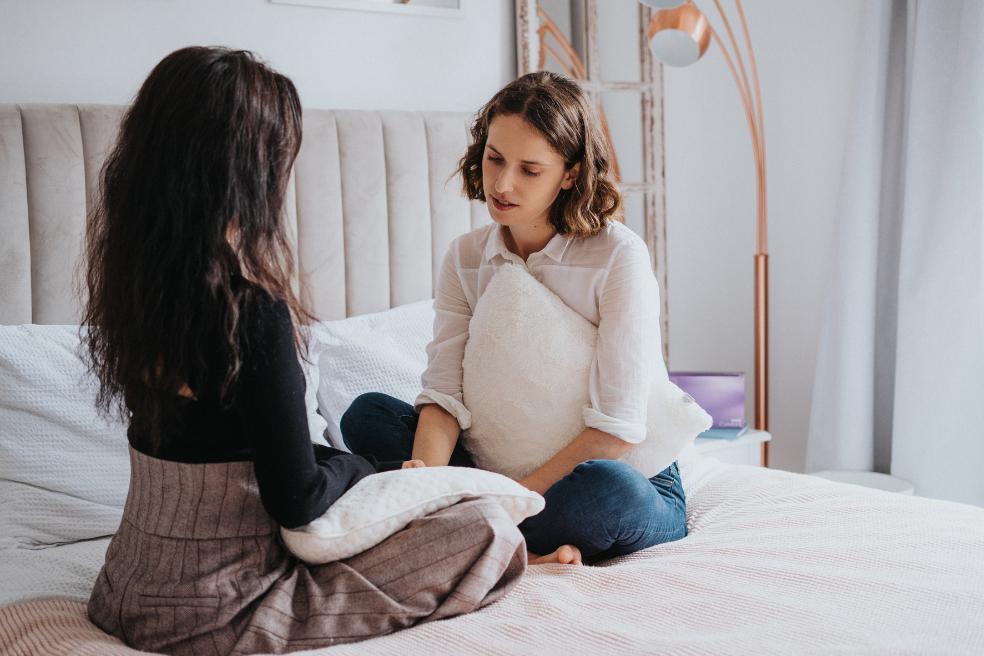
Understanding the Impact of Endometriosis and Vaginismus on Painful Sex
Sex is often portrayed as a natural and pleasurable part of life, but for many individuals, it can be accompanied by pain and discomfort due to medical conditions like endometriosis and vaginismus. If you’re living with these challenges, it’s important to know you’re not alone. These conditions are more common than you might think, and there is plenty of support available to help you navigate this journey.
Firstly, what is Endometriosis and how can it cause painful sex?
Endometriosis is a chronic condition where tissue similar to the lining of the uterus grows outside it, such as on the ovaries, fallopian tubes, or other pelvic organs. This tissue reacts to hormonal changes during the menstrual cycle, leading to inflammation, scarring, and sometimes the formation of cysts. One common symptom? Pain. Often severe, including during sex.
Pain during sex (dyspareunia) linked to endometriosis is often due to the location of the endometrial tissue. For example, if the tissue is near the vagina or lower pelvis, the physical pressure during intercourse can cause sharp or throbbing pain. Inflammation and scarring can also make internal tissues less flexible and more tender, exacerbating the discomfort. The good news is that there are treatments to help manage these symptoms and improve your quality of life.
What is Vaginismus and how does it affect sexual intimacy?
Vaginismus, on the other hand, is a condition where the muscles in the pelvic floor involuntarily tighten, making penetration—whether it’s during sex, a medical exam, or tampon use—painful or impossible. Unlike endometriosis, vaginismus is often linked to psychological factors, including anxiety, trauma, or fear related to sex, although it can also have physical triggers.
For people with vaginismus, even the thought of penetration can trigger muscle spasms, creating a cycle of fear and pain. This can lead to avoidance of intimacy and feelings of frustration, but it’s important to remember that vaginismus is treatable. With the right support, including therapy and gradual desensitization, many people find significant relief.
If you’d like to read more about Vaginismus, have a look at our blog https://claritistore.com/breaking-the-silence-understanding-and-overcoming-vaginismus/
The Double Burden: When both conditions collide
It’s not uncommon for individuals to experience both endometriosis and vaginismus, amplifying the challenges of painful sex. Endometriosis may cause chronic physical pain, while vaginismus compounds this with muscular and psychological barriers. Together, they can create a complex web of physical and emotional hurdles, but there is hope. A combination of medical and therapeutic approaches can make a world of difference.
Seeking Help: Breaking the Silence
If you’re experiencing painful sex, you’re not alone, and you don’t have to face it in silence. It is important to remember that these are medical conditions, not personal failings. Reaching out to a gynaecologist, pelvic floor therapist, or a counsellor is a powerful first step toward finding relief. There are effective treatments available, including:
Building Awareness and Support
One of the biggest hurdles to addressing painful sex is overcoming the stigma surrounding it. But remember, you’re not alone, and help is out there. Open conversations with healthcare providers, educators, and loved ones can make all the difference. Support groups—both online and in person—can also provide a safe space to share experiences and connect with others who understand what you’re going through.
Final Thoughts
Living with endometriosis or vaginismus can feel overwhelming at times, but you are not alone in this journey. Painful sex is a valid medical concern that deserves care, understanding, and action. With the right resources and support, it’s possible to reclaim intimacy and find relief. Remember, there is hope, there is help, and you deserve a pain-free, fulfilling sex life. Let’s keep the conversation going—because no one should have to face this alone.
References
1. As-Sanie, S., et al. (2019). "Chronic Pelvic Pain in Women." The Lancet.
2. International Society for the Study of Women's Sexual Health (ISSWSH). (2023). "Understanding Vaginismus."
3. Zondervan, K. T., et al. (2020). "Endometriosis." Nature Reviews Disease Primers.
4. Brotto, L. A., & Basson, R. (2014). "Psychological Interventions for Vaginismus." Journal of Sexual Medicine.
5. NHS. (2023). "Endometriosis - Causes and Treatment."
6. North American Society for Pediatric and Adolescent Gynecology (NASPAG). (2022). "Pelvic Floor Dysfunction and Pain."
